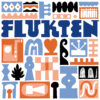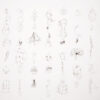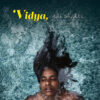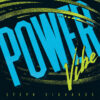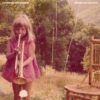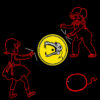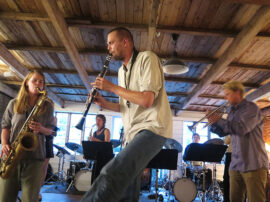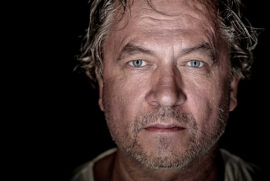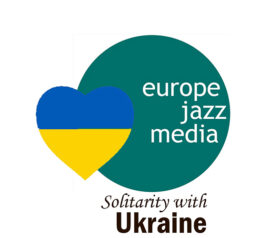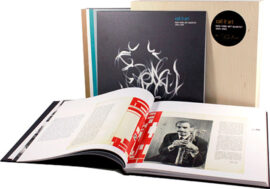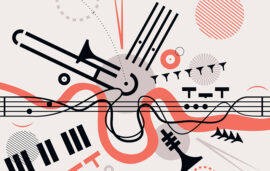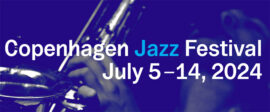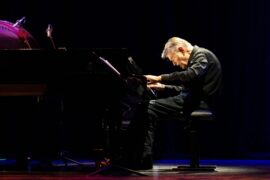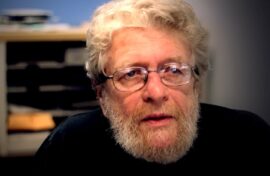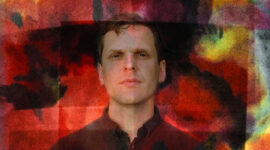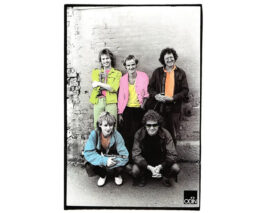
Rituals is the third album of the Israeli, free improvising Butterfly Effect Ensemble featuring Boston-born wind instrument and live electronics player Stephen Horenstein, known as a dedicated disciple of innovative trumpeter Bill Dixon and for his decade-long association with Dixon more than forty years ago, educator and bandleader; percussionist Jeffery Kowalsky, the principal percussionist in Israel symphony orchestra and educator (who was also born in Boston and collaborated with Horenstein since the nineties); and pianist Lior Novak, who is a generation younger than Horenstein and Kowalsky, a contemporary composer and soloist of many chamber outfits and symphony orchestras all over the world. The ensemble began working in 2009 and recorded Rituals live at the Jerusalem Music Center in 2014. Horenstein’s son, Jacob Yona, contributed the cover artwork, Merging with the Infinite Self.
On its previous album, Chimera, the Ensemble relies on techniques established during its Cine-Concert Project that suggested contemporary, free improvised music that was meant to «breathe new life into silent films». Rituals is informed by the Ensemble’s common language of sound cues and its layered sonic architectures conceived in the cinematic project. But Chimera was much more dramatic, raw and intense and searched for cathartic eruptions while Rituals is more introspective and compassionate, with a strong focus on textural episodes evoking the ceremonial and hypnotic, the exotic and mysterious. Again, as on previous albums of the Ensemble, its list of instruments is extensive and unique, with rare ones like Thai nipple gongs, heat sink, glass glockenspiel, Chinese saxophones, Greek double reeds, hand-made folk harp, amglocken, World War II helmet, Irish fife, bass flute, kalimba, Pungi snake charmer, shakuhachi, Buddhist bowls and boo-bams. Horenstein, Kowalsky and Novak use improvisations as a tool for instant compositions with exemplary deep listening, an imaginative sensitivity to the rare sonorities of the unusual instruments, and a cohesive approach. A highly immersive listening experience.
Sounds of Siday: Side B is a completely different project of Horenstein. It is a sort of homage to the most famous jingle writer in the history of radio and television, British-American electro-acoustic composer and musician Eric Siday, considered to be the highest-paid musician per second on record after WWII. Horenstein was responsible for digitizing Siday’s archive, then placing it in Lincoln Center and The New York Public Library, and later The Siday Fellowship for Musical Creativity provided university tuition to some of Israel’s musical talents. Horenstein and one of the fellowship recipients, percussionist Matan Daskal, devised this project for the Israel Festival in Jerusalem and it premiered in December 2020.
The project works from time present to time past, therefore Side B is released first (Side A will be released later in 2024). It features Siday’s narration in the first piece, «Siday’s Story», about the importance of a mother’s heartbeat for humans and its healing effect, but it offers a subversive reaction to Siday’s consumer-focused, one-dimension jingles, and follows Horenstein’s Ph.D. thesis that claimed that our sense of time slows down (psychologically) when saturated with information, and over longer periods is altered by a semi-hypnotic trance, and the second piece «Journey into Fractured Time» corresponds with that thesis. It reaches its emotional climax with the last piece, the chamber «Echoes of Lullabies», an adaption of Roy Rogers and Dale Evans’ «Happy Trails», sung by Horenstein’s daughter Eliana Lila, and accompanied beautifully by harpist Ada Ragimov and cellist Tom Klein. The project was performed by The Lab and Castle in Time Orchestras, conducted by Horenstein, and stresses Horenstein’s belief that this music can be used as an emotional cleansing, an exorcism of sorts, to help us recover from the saturation of our lives, including from the current traumas of war.
Eyal Hareuveni
Stephen Horenstein (wind instruments, live electronics), Jeffery Kowalsky (percussion), Lior Navok (piano), Eliana Lila Horenstein (vocals), Rachel Mazor (flute), Mariona Godia (oboe), Chen Amar (soprano saxophone), Eyal Netzer (tenor saxophone), Bob Trachtenberg (baritone saxophone), Ofer Etzioni (French horn), Maayan Milo (trombone), Yonatan Daskal (synthesizer, piano), Asaf Meidan (computer), Ada Ragimov (harp), Benedikt Bindewald (violin), Shani Bar (cello), Tom Klein (cello), David Michaeli (double bass), Or Sinay (double bass), Shalev Ne’eman (percussion), Matan Daskal (percussion), Pablo Ordas (percussion), Haggai Fershtman (drums), Yeonathan Shachar (electric guitar), Benedikt Bindewald (violin)

